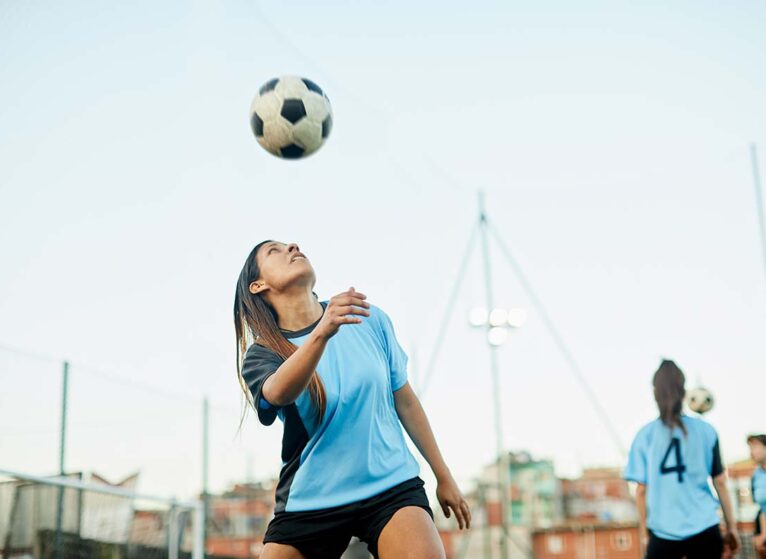In the past decade, we've all seen more headlines about concussions. We've learned about the extreme physical damage multiple concussions can cause. And we've heard about football players and military veterans dying by suicide after brain injury.
UVA Health's brain injury team has played a leading role in researching and developing services treat and prevent brain injuries from sports and work. Now an important new discovery gives a better understanding of why multiple concussions are so dangerous.
Discovery Could Help Avoid Major Consequences of Multiple Concussions
If we've learned anything, it's that step 1 in 'what to do after a concussion' is try to prevent getting another one. New research at UVA Health helps us understand why that's so important.
Researchers found that when a concussion causes the brain to swell, it squeezes lymphatic vessels that clean the brain. That means they stop working for a time and can't rid the brain of toxins.
Hit Your Head?
Concussions can cause scary symptoms. Our experts are here to answer your questions, help you heal, and look out for more serious symptoms.
We know damage from multiple concussions puts people at risk for dementia and anxiety, depression, and suicide. The research brings us closer to predicting who is at greater risk for these devastating effects: people who already have problems with their brain's drainage system.
"If you have a pre-existing kink in the pipes and you get hit in the head, then everything is taken to a higher level," explains researcher John Lukens, PhD.
How does knowing this help? Lukens hopes doctors will eventually be able to check whether lymphatic vessels damaged by concussion have healed. That way, people can stay out of work or sports until then. After that, another concussion is less likely to do major damage. He also hopes we'll one day have medicines that help repair that damage.
What to Do After a Concussion
The first step is recognizing you have a concussion.
How to Spot a Concussion
An impact to the head can stop the body from delivering glucose, or energy, to the brain, causing a concussion. Look out for:
- Dazed feeling
- Confusion
- Nausea
- Vision changes
- Nausea
Also, pay attention if you feel fine after you hit your head but feel terrible the next day.
Let Yourself Heal
Wondering what to do after a concussion? The most important thing is to rest. Dial up the self-care, eat well, and avoid alcohol. Wait until you're better to return to physical activity. Most people need 5-10 days to heal, but older and younger people could take 30 days to get better.
More Serious Symptoms
See your doctor if you have:
- Difficulty talking
- Worsening headache
- Vomiting, especially while resting
- Dizziness with abnormal eye movements


